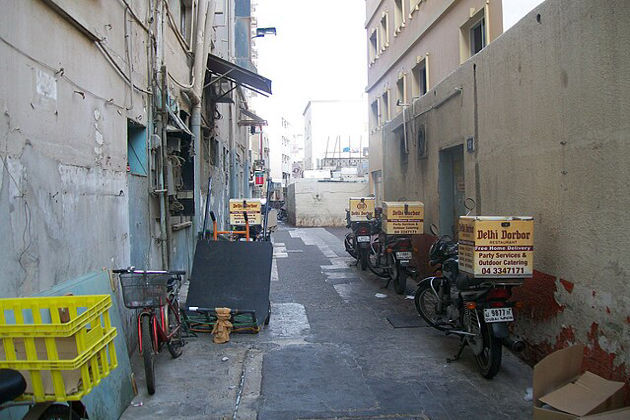Move FM Global News

Thousands face eviction in overcrowding sweep across Dubai
Aug 3, 2025DUBAI, U.A.E.: In the shadow of Dubai’s gleaming towers and opulent penthouses, authorities have launched a sweeping campaign against illegal subletting, ordering thousands to vacate makeshift dwellings in overcrowded apartment buildings. The clampdown follows a major fire in June at a 67-story residential tower, which forced the evacuation of more than 3,800 residents.
Officials blamed partitioned units for contributing to fire hazards and have begun aggressively enforcing housing regulations.
Egyptian migrant worker Hesham has lived in a two-bedroom flat carved up to fit 10 men. His “room” is a closet-sized space barely wide enough for a mattress. At US$270 a month, it was all he could afford — until now.
For low-paid migrant workers who power Dubai’s service and construction sectors, the campaign has triggered panic. Many now fear eviction or fines, with no clear alternative for affordable housing in a city built for the wealthy. “We don’t know what we’ll do,” said Hesham, 44, a salesman who spoke to the Associated Press under a first-name-only condition, fearing reprisals. “We don’t have any other choice.”
Dubai’s population has surged to nearly four million and is projected to reach 5.8 million by 2040. Much of the city’s real estate boom caters to affluent expatriates, with luxury high-rises and million-dollar properties multiplying. According to real estate firm Knight Frank, nearly 20 percent of homes in Dubai were worth more than $1 million as of last year. Meanwhile, short-term rental prices are forecast to rise another 18 percent by the end of 2025.
That growth has left a large portion of the city’s residents — mostly migrants from Asia and Africa — priced out of legal housing. Many earn just $300 to $550 a month, and rely on partitioned flats or communal bunk-bed arrangements that cost as little as $100. By contrast, a one-bedroom legal unit averages around $1,400 a month, per Engel & Völkers.
Migrant workers typically send a significant portion of their earnings home, leaving them with little for housing. While UAE law mandates employers to provide accommodation for workers earning under $400 monthly, many are employed informally, beyond the reach of regulation.
“The crackdown will raise housing costs and create a lot of stress for people whose lives are already precarious,” said Steffen Hertog, a Gulf labor expert at the London School of Economics.
The June blaze that triggered the latest crackdown occurred in Dubai Marina, an upscale district. Police reported 532 occupied units in the tower — an average of seven people per apartment. While no significant injuries were reported, the incident highlighted the risks of over-occupied and partitioned homes.
A deadlier fire in 2023 in Dubai’s old Deira neighborhood claimed 16 lives and injured nine more. That apartment, too, had been illegally subdivided.
Dubai Municipality issued a statement saying the new inspections are intended to “ensure the highest standards of public safety” and improve tenants’ quality of life. It did not respond to questions about where displaced low-income residents are expected to go.
For Ebony, a 28-year-old migrant from Ghana, the crackdown meant losing her shared loft space — a plywood bunk above a narrow cot. “They said we had to leave immediately,” she recalled. “Now I sleep on a friend’s floor. I don’t know what comes next.”
With begging outlawed, labor unions banned, and no minimum wage guarantees, workers like Ebony and Hesham are left in limbo. Dubai’s shimmering skyline offers little shelter for those who built it.


